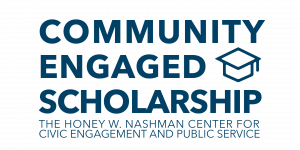Campus Compact and CoGenerate are launching the Campus CoGenerate Affinity Network with support from MetLife Foundation. Starting in April 2025, this new initiative will bring together higher education leaders and students to foster collaboration and build meaningful connections across generations, with the goal of bridging generational divides and expanding economic opportunity.
Registration is now open for those interested in participating in this innovative network. ...continue reading "New Initiative: Campus Compact and CoGenerate Launch Affinity Network"


